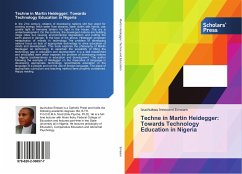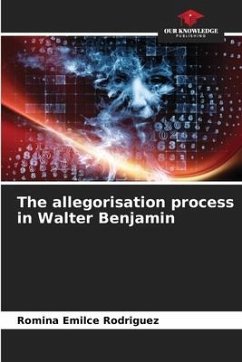
The question of language in Heidegger: between technique and serenity
A philosophical questioning of technology
Versandkostenfrei!
Versandfertig in 6-10 Tagen
33,99 €
inkl. MwSt.

PAYBACK Punkte
17 °P sammeln!
Is it possible to live with technological devices and procedures without becoming dependent on them? Is it still possible to look at a river without seeing a hydroelectric plant, or look at the sun without imagining a solar energy dish that captures its rays, or believe in the gods without remembering the financial fortune that religious proselytising can bring us? To answer these questions, 'The question of language in Heidegger: between technique and serenity' seeks to understand the question of language in the thought of the philosopher Martin Heidegger, questioning the way it is considered...
Is it possible to live with technological devices and procedures without becoming dependent on them? Is it still possible to look at a river without seeing a hydroelectric plant, or look at the sun without imagining a solar energy dish that captures its rays, or believe in the gods without remembering the financial fortune that religious proselytising can bring us? To answer these questions, 'The question of language in Heidegger: between technique and serenity' seeks to understand the question of language in the thought of the philosopher Martin Heidegger, questioning the way it is considered by the technical (or technological) world and, from this, thinking about a change in our relationship with language that allows it to be considered in an original or natural way. In order to do this, we need to change our way of thinking, which moves away from the calculating and objective scope of technique and towards a way of thinking that meditates and reflects, that truly lingers over things and, in this way, takes place serenely, which the author calls 'serenity towards things', which also leads to a critique that rethinks the way we deal with things and our daily and contemporary way of being-in-the-world.














